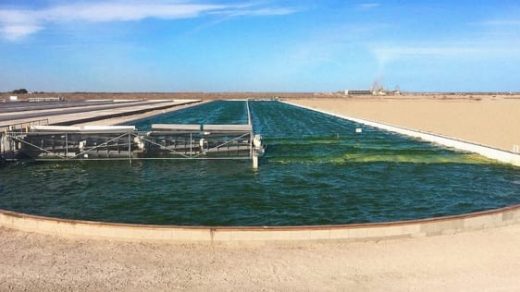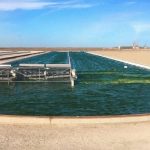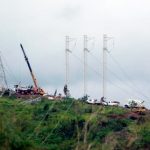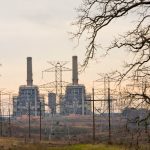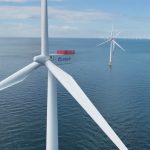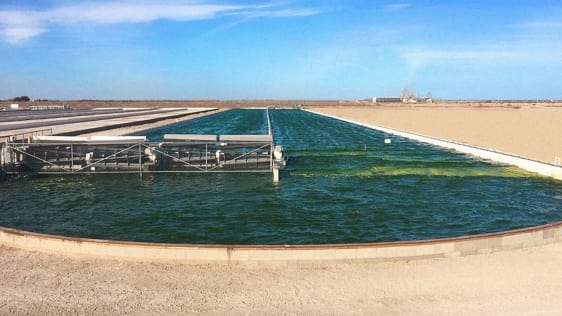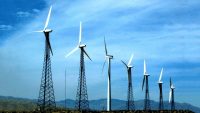Exxon Thinks It Can Create Biofuel From Algae At Massive Scale
In the California desert near the Salton Sea and the tiny town of Calipatria, an acre-size rectangular pond is filled with saltwater and brightly colored algae. The pond is one of several at the site where Exxon Mobil and Synthetic Genomics are taking the next step toward a goal that has been elusive for other companies so far: the production of biofuel at scale.
“The goal here is to get to a sustainable, renewable biofuel that can be cost-competitive with pumping oil out of the ground, but can scale to levels that go far beyond demonstration levels,” says Oliver Fetzer, chief executive officer at Synthetic Genomics. “We see this step as a very important step along the way to scalability.”
In 2017, the partners announced–after nine years of research–that they had solved one key challenge for making biofuel from algae. By tweaking a particular gene in a certain species of algae, they were able to make the algae produce twice as much fat as it would in the wild, but still grow as quickly as usual. That fat can be made into fuel.
The team is still working on the basic biology to make algae even more productive, but now putting equal effort into solving engineering challenges to grow and harvest algae efficiently. In the ponds, Exxon engineers are beginning to study, for example, how to best move algae so that it’s exposed to the most sunlight and CO2, both of which it needs to grow. (The tests will happen first with wild strains of algae, as the partners begin to work with regulators and the public to get buy-in for testing the gene-edited variety.)
In seven years, with some assumptions about continued advancements in their ability to gene-edit and farm algae, they believe that they will be technically able to produce 10,000 barrels of algae biofuel a day. That’s a tiny amount compared to crude production; the U.S. may soon produce as much as 11 million barrels a day. But it’s a major step for biofuels.
“Ten thousand barrels a day would be world-scale for current biofuels,” says Vijay Swarup, vice president for research and development at ExxonMobil Research and Engineering Company. “And this is one small step. It’s an important step because we’re going to learn about the engineering fundamentals tied with the biology fundamentals. But we see this as scalable. The goal here is to get to the hundreds of thousands of barrels a day…if we didn’t think this was going to be scalable, reliable, affordable, and sustainable, then we wouldn’t be working on it because we go in for scalable solutions. We’re not interested in niche applications or additive applications. The pathway here is to get to that large scale.”
The companies envision that algae would be grown on land that isn’t capable of growing food crops, and because it uses saltwater, it wouldn’t draw on limited freshwater supplies. To produce hundreds of thousands of barrels a day, Fetzer says, would require much less than 1% of the land area currently used for soy and corn farming. At some sites, including the test site near the Salton Sea, the farms may be able to use waste CO2 to make the algae grow. The resulting fuel could be used to run planes and trucks that still require liquid fuels (though both electric planes and electric semis are in various stages of development ).
Exxon’s continued investments in non-fossil-fuels is happening under a cloud of increasing attention–and major lawsuits–for how much the company knew about the climate damage its product was causing. Shareholders have also pushed the company to better assess what effects climate change may have on its future financial prospects, though the company has said it doesn’t think they will be severe, but its biofuel investment may imply otherwise.
Startups attempting to make algae biofuels have failed in the past, in part because they made assumptions about rising oil prices that haven’t come to pass. “What we’re trying to do together is get to something where we don’t have to assume a dramatically rising oil price in order for this to be successful,” Fetzer says. As the partners work on perfecting the algae, and the production process, “that takes some time. That’s why nobody is doing this right now commercially–it’s not quite ready yet, and a lot of people just gave up.”
While a truck running on biofuel still emits greenhouse gases, the emissions can be considered carbon neutral since the algae sucks up CO2 as it grows–unlike fossil fuels, which burn carbon that has been buried for millions of years. “For the last couple hundred years, mankind has evolved and achieved tremendous wealth and life expectancy by pretty much burning stuff that was trapped underground and releasing the energy we need to power that,” Fetzer says. “What we are now doing is to start putting the brakes on that and recycling CO2 and I think that’s, to me, incredibly exciting…”
Correction: The article originally misspelled Oliver Fetzer’s name.
(20)

